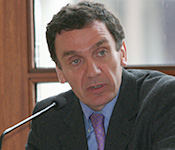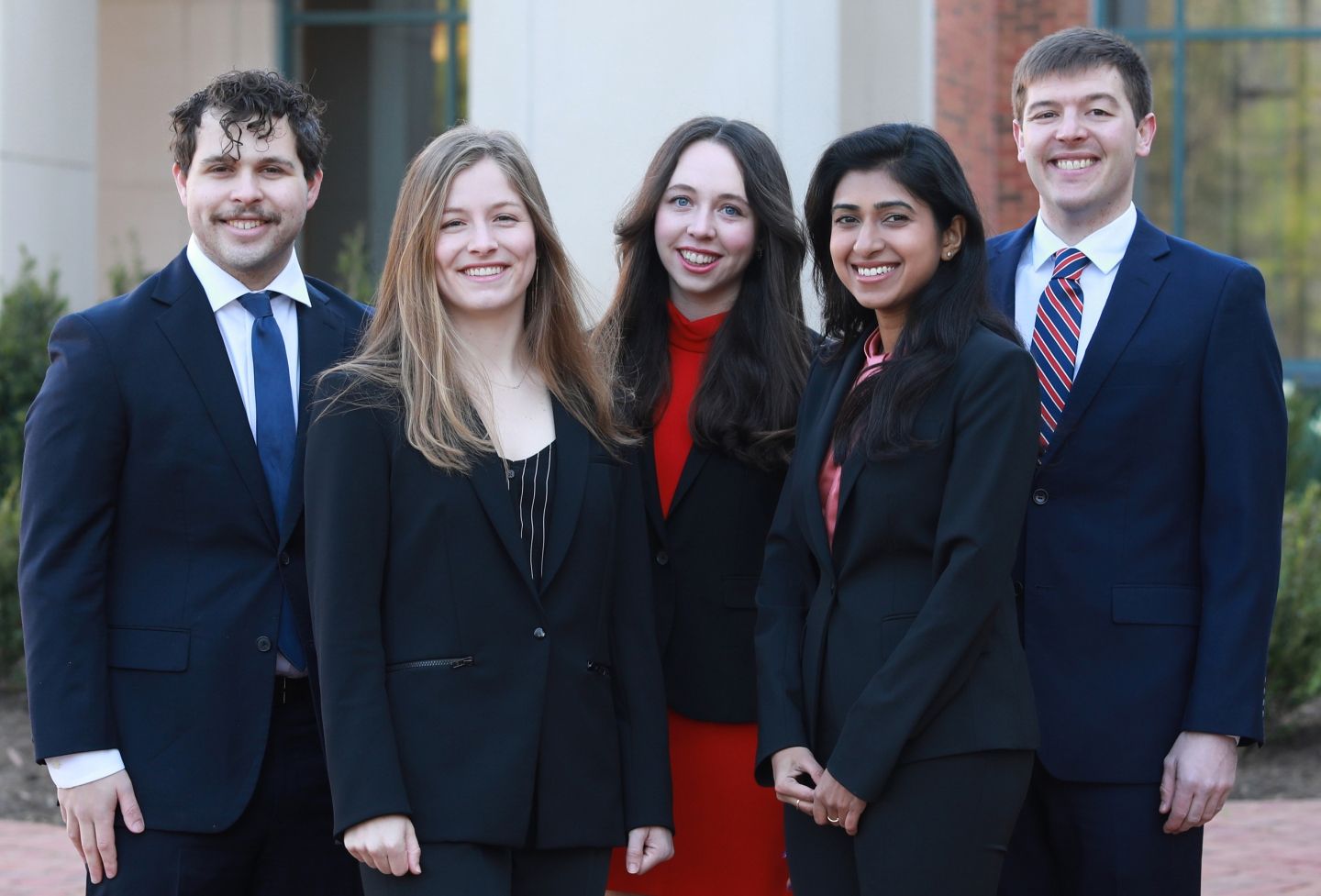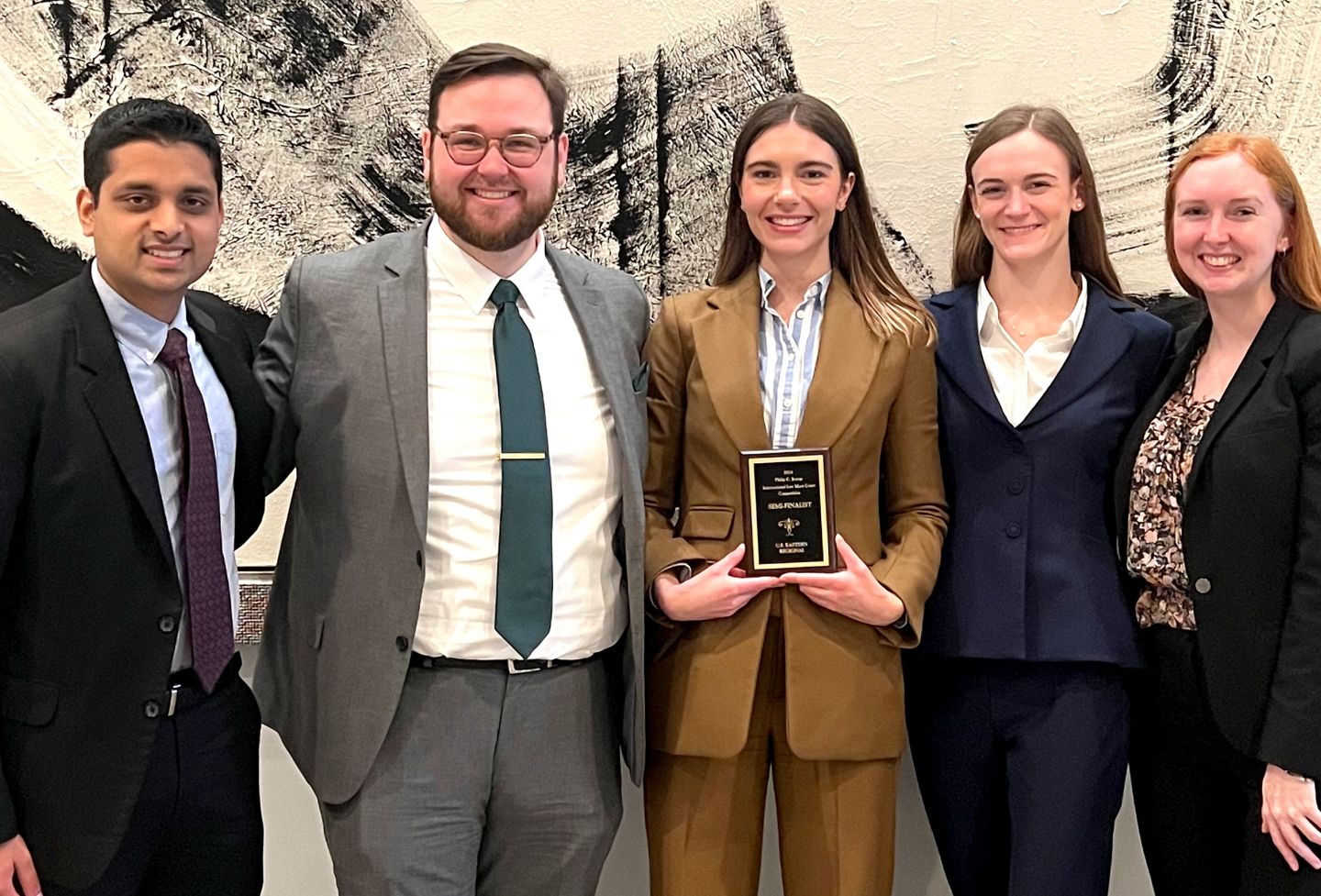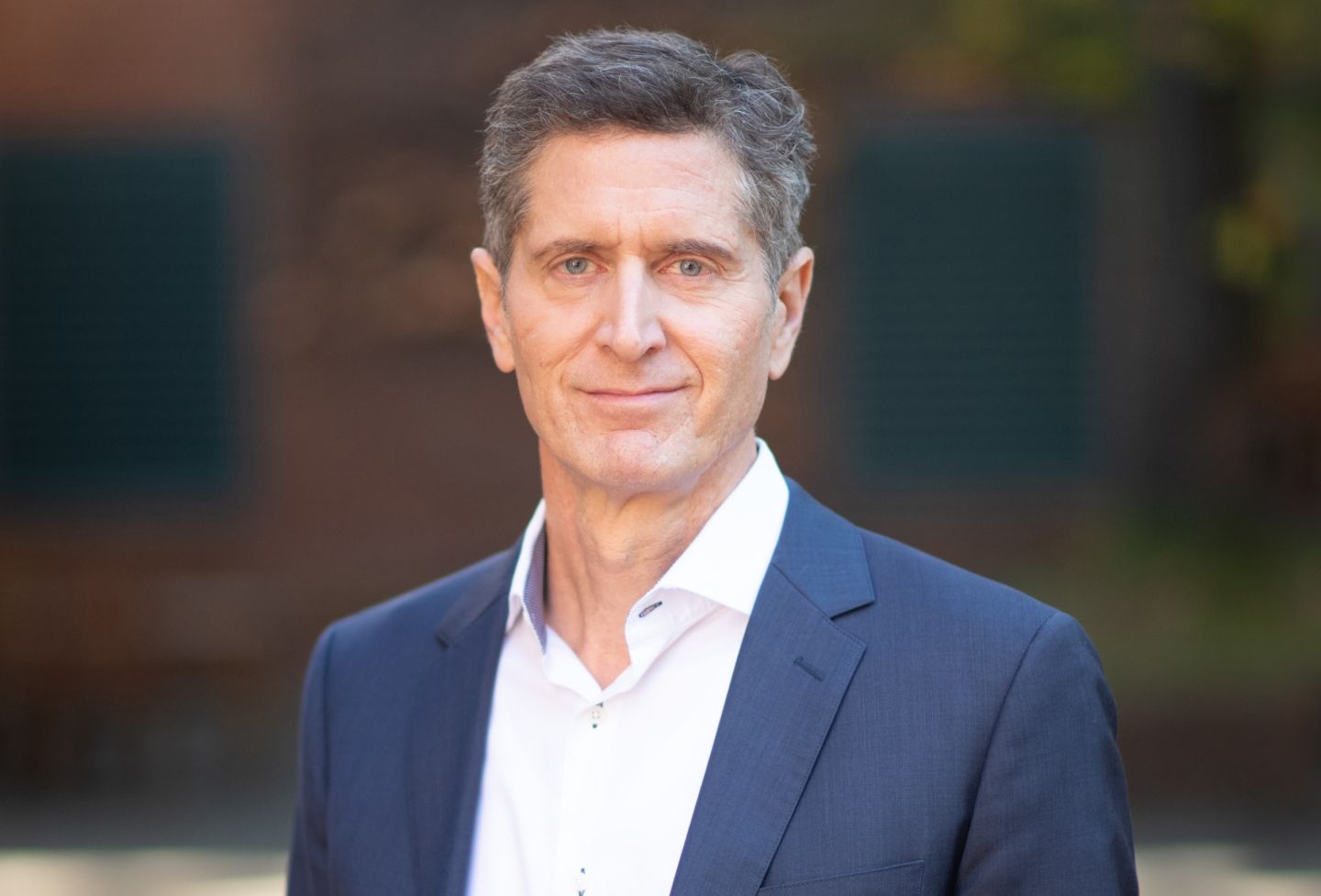Leftward Drift in Latin America Complex, Says Expert
Trying to determine what is the political “left” and what is “right” in Latin America, and whether the perceived drift toward the left in recent years will have a lasting impact on international law, is a challenge, according to Santiago Canton, executive secretary for the Inter-American Commission on Human Rights for the Organization of American States (OAS).
 “There is a tendency to make generalizations when we refer to Latin America, particularly in the U.S....When we refer to parties on the left we are not referring to one solid group of ideas,” he said.
“There is a tendency to make generalizations when we refer to Latin America, particularly in the U.S....When we refer to parties on the left we are not referring to one solid group of ideas,” he said.
Canton gave the keynote address Feb. 22 in Caplin Pavilion for the 2008 J.B. Moore Society of International Law Symposium, titled “The Rise of the Left in Latin America and Its Implications for International Law.”
“It’s difficult to come up with an objective definition of which governments represent leftist ideals,” Canton said. “It used to be that you could check to see if those governments were part of the Socialist International, but that no longer works.”
Instead, he urged an examination of the speeches political leaders give in world forums such as the United Nations, and of the actions of governments claiming to be leftist. In doing so he found common characteristics among supposedly leftist governments such as Chile, Argentina, and Brazil.
“Currently the left is increasingly identified with opposition to political and socio-economic inequalities. These movements, parties, and leaders are characterized by their general tendency to criticize and undo the policies… implemented by their predecessors,” he said, noting that they opt as well for a greater role for the state in the national economy.
“Many have also raised issues such as climate change, labor immigration, the rights of indigenous people, and accountability for human rights violations in the past.” He quoted Chilean political scientist Manuel Antonio Garreton, who referred to the change as “the re-establishment of justice in the society and the nation.”
Canton explained that re-establishment results in a two-dimensional impact: first, a strong sense of ethics for those countries that experienced crimes and genocide at the hands of their former government, an end of impunity and the prosecution of those who participated in such crimes, and a focus on human rights and respect for diversity.
The second impact is “the strengthening of the socio-economic dimension, diminishing the difference between nations and making one country out of the several that today comprise each country in the region,” he said.
The importance of the socio-economic dimension, according to Canton, is that, “It is a reaction to the past, to the policies of reform that didn’t improve the lives of the citizens and to the human rights violations that characterized some countries in the region several decades ago and were never fully addressed by the governments that came after the dictatorships.”
Canton noted three important changes in human rights law in Latin America: “the application of human rights law to past violations, the adoption of new international instruments, and the ratification of existing instruments.” He cited cases from Argentina, Chile, and Peru as important because they showed “the progress of the universalization of human rights and a break with the culture of impunity.”
As an example of these changes Canton referred to the long-awaited prosecution of top Argentine military and civilian officials responsible for the disappearance of thousands of Argentine citizens in the 1970s and, more recently, the extradition of Peru’s former dictator Alberto Fujimori.
Canton cited new instruments of human rights law that are now part of agreements ratified by OAS member states, including the Right to Truth, which seeks to end impunity and promote human rights, and the U.N. Declaration on the Rights of Indigenous People adopted last year by both the U.N. Human Rights Commission and the OAS Commission on Human Rights.
But the ratification of human rights agreements is not limited to the left, Canton noted. “The distinction between governments from the left and the right in this field is fortunately not relevant…because human rights should not be an issue of either the left or the right.” What they represent, Canton said, is an important advancement for international law. “It’s important to note that respect for human rights and the fight against poverty are on the agenda for parties from the left and the right alike.”
Canton observed that, over the last couple of decades, human rights issues were not properly addressed by either left or right, but noted that, “Today’s leaders, mostly from the left…are implementing policies with the support from the citizenry.
“It is to be hoped that this time Latin America will finally leave behind the dictatorships, the massacres, the disappearances, the exclusion, and the poverty, and will build a solid democratic system that, regardless of the ideology, will put the respect of individuals at the top of their agendas.”
Warning that, in the familiar swing between democracy and dictatorship, some Latin American governments are not paying enough attention to building democratic institutions, Canton said, “A region with great human and natural resources should not continue to drag behind in its efforts to provide its inhabitants with the dignity every person deserves.”
Canton concluded his address on a note of optimism. “Laws in Latin America have historically neglected the poor, indigenous people, the Afro-descendents, the victims of human rights violations. Today, we hope that after many decades the laws in Latin America could start to help the ones that always need it the most.”
Founded in 1819, the University of Virginia School of Law is the second-oldest continuously operating law school in the nation. Consistently ranked among the top law schools, Virginia is a world-renowned training ground for distinguished lawyers and public servants, instilling in them a commitment to leadership, integrity and community service.


